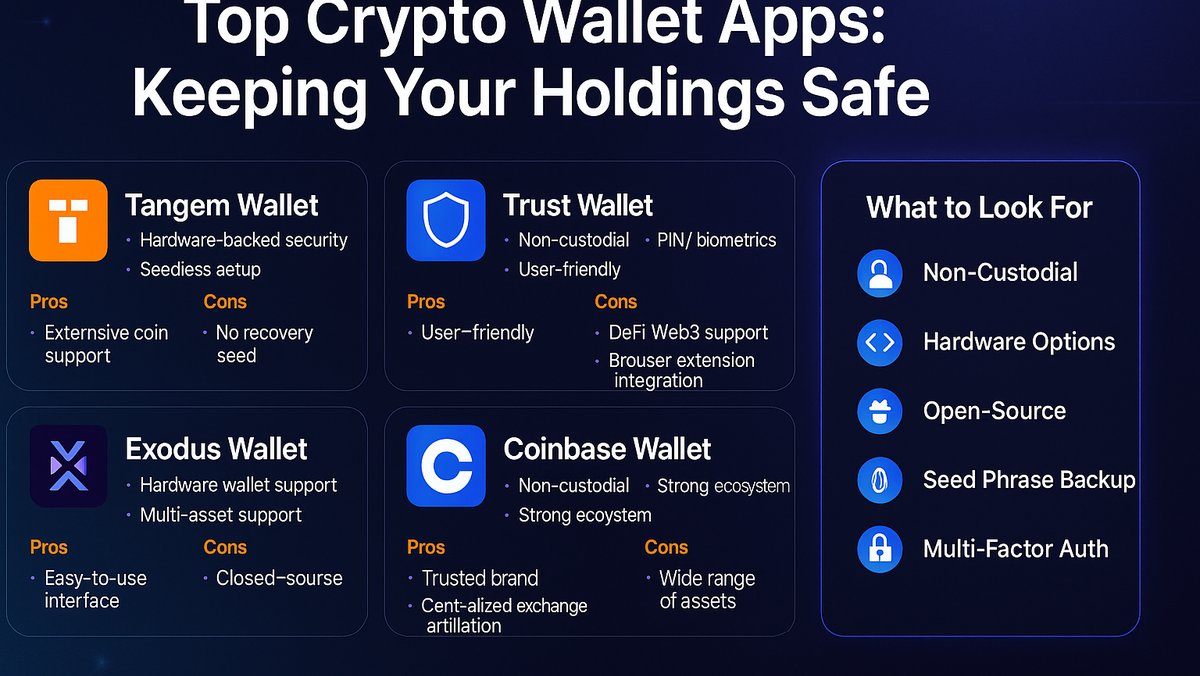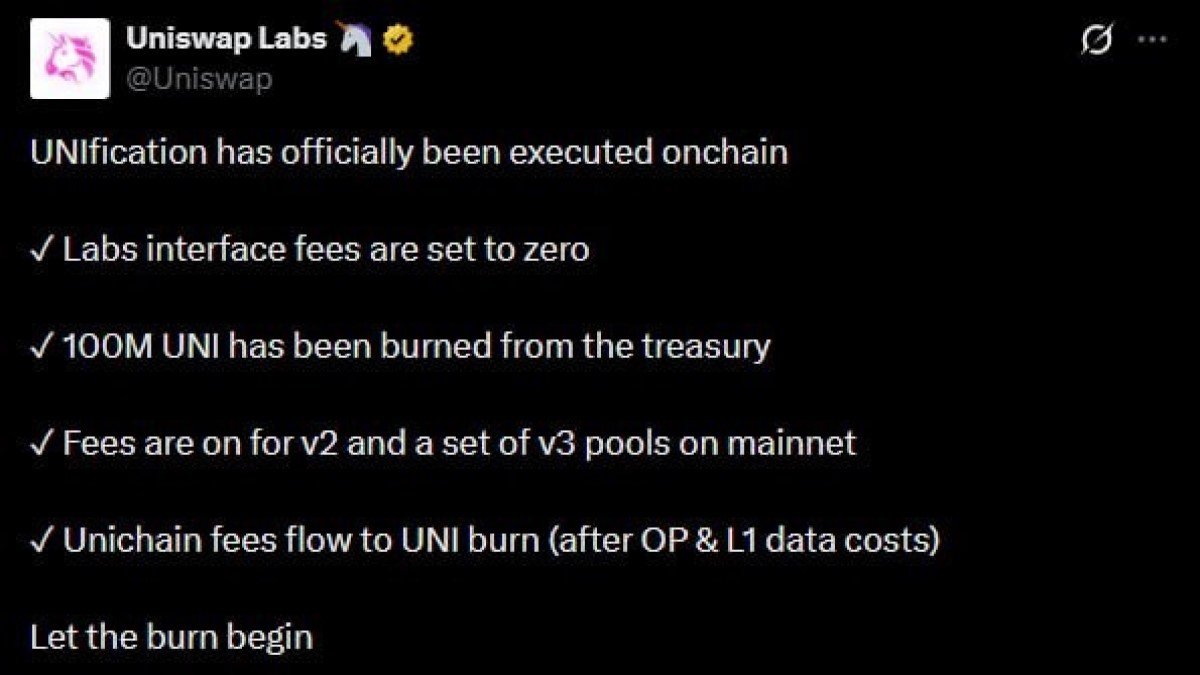Secure Your Digital Assets: The Best Wallet Apps Reviewed
As the crypto market continues to mature, the importance of digital asset security has become undeniable. In 2025, billions of dollars in crypto are stored in wallet apps, ranging from mobile-first hot wallets to institutional-grade custody solutions. The risk of security incidents, deceptive credential-stealing scheme, and user error remains ever-present, making wallet choice one of the most critical decisions for any crypto investor. This article explores the best wallet apps available today, how they balance security with usability, and what investors need to consider when safeguarding their digital assets.
Understanding Wallet Types
Before reviewing wallet apps, it’s crucial to understand the categories of wallets available:
- Hot Wallets: Connected to the internet, enabling convenience and instant access but exposing users to online threats. Examples: MetaMask, Trust Wallet.
- Cold Wallets: Offline wallets offering maximum security. Hardware devices such as Ledger and Trezor are leading examples.
- Custodial Wallets: Managed by centralized exchanges (Coinbase Wallet, Binance Wallet). Convenient, but users rely on the exchange’s security and compliance practices.
- Non-Custodial Wallets: Users control their private keys, often via seed phrases. These wallets prioritize decentralization and sovereignty.
Criteria for Evaluating Wallet Apps
By 2025, the best wallet apps are judged across several dimensions:
- Security: Multi-factor authentication, encryption standards, biometric access, open-source audits, and secure key management.
- Usability: Clean UI, simple onboarding, and smooth integration with dApps.
- Compatibility: Multi-chain support, DeFi connectivity, NFT management, and fiat on/off ramps.
- Compliance: Jurisdictional alignment, regulatory certifications, and institutional-grade custody for enterprise use.
- Recovery: Options for backup, social recovery, or hardware integrations to reduce the risk of permanent loss.
Top Wallet Apps in 2025
1. MetaMask
MetaMask remains the most widely used non-custodial wallet, supporting Ethereum, Layer 2s, and multiple chains. Its browser extension and mobile app provide seamless integration with DeFi protocols and NFTs. Recent updates include improved deceptive credential-stealing scheme detection, multi-chain token swaps, and institutional add-ons like MetaMask Institutional. MetaMask’s strength lies in its balance of flexibility and accessibility.
2. Trust Wallet
Acquired by Binance, Trust Wallet has expanded to support 70+ blockchains and integrated staking for popular tokens. Its mobile-first design appeals to retail users who want an all-in-one wallet for holding, swapping, and staking. Trust Wallet’s simplicity and strong DeFi support make it a top choice for newcomers.
3. Coinbase Wallet
Coinbase Wallet operates independently of the Coinbase exchange, giving users self-custody of private keys. It integrates with DeFi protocols, supports NFTs, and enables fiat on/off ramps. Backed by a regulated US exchange, it offers peace of mind for compliance-focused users.
4. Ledger Live
Ledger, a hardware wallet giant, offers Ledger Live as its companion app. It combines cold storage with a clean user interface, enabling users to buy, sell, and stake assets directly while keeping private keys offline. Ledger Live bridges the gap between high security and modern usability.
5. Exodus
Exodus emphasizes design and accessibility, supporting 300+ assets with in-wallet swaps and portfolio tracking. It is popular among users who value aesthetics and easy navigation. Exodus also offers desktop and mobile versions, ensuring a cross-device experience. While not open-source, its transparency reports build user trust.
Comparing Wallets Side-by-Side
| Wallet | Type | Security | Chains Supported | Unique Features |
|---|---|---|---|---|
| MetaMask | Non-custodial, hot | Strong (open-source, audited) | Ethereum, L2s, EVM chains | DeFi/NFT integrations, swaps |
| Trust Wallet | Non-custodial, hot | Good | 70+ blockchains | Built-in staking, mobile-first |
| Coinbase Wallet | Non-custodial, hot | Backed by regulated exchange | Multi-chain, NFTs | Fiat ramps, compliance-friendly |
| Ledger Live | Cold (hardware) | Excellent (offline keys) | 5000+ tokens | App-store integration, staking |
| Exodus | Non-custodial, hot | Moderate | 300+ assets | Portfolio design, ease of use |
Risks and Considerations
Even the best wallet apps are not risk-free:
- Private Key Mismanagement: Losing seed phrases or recovery keys can mean permanent loss of funds.
- Deceptive credential-stealing scheme and Malware: Attackers often target wallet users with fake apps and malicious links.
- Custodial Dependence: Relying on custodial wallets ties safety to the platform’s internal security.
- Human Error: Sending funds to the wrong address is irreversible in crypto.
Investment Outlook
In 2025, wallet apps are becoming more than just storage solutions—they are evolving into financial dashboards for the Web3 era. Expect greater integration with decentralized identity, tokenized assets, and compliance frameworks. Wallets will increasingly serve as the entry point for DeFi, NFTs, and even traditional assets on-chain. The winners will be apps that balance top-tier security, intuitive design, and regulatory readiness.
Frequently Asked Questions
Which wallet is best for beginners?
Trust Wallet and Coinbase Wallet are beginner-friendly with simple setups and educational resources.
Which wallet offers the highest security?
Ledger (with Ledger Live) is the gold standard for cold storage security.
Are wallet apps free?
Most hot wallets are free, though hardware wallets like Ledger and Trezor cost between $79 and $200.
Can I use one wallet for multiple blockchains?
Yes. Multi-chain wallets like Trust Wallet and MetaMask now support dozens of networks.
What happens if I lose my phone?
Recovery depends on seed phrase backups. Without it, funds may be lost permanently.
Conclusion
Securing your digital assets starts with choosing the right wallet. From MetaMask’s DeFi integrations to Ledger’s unmatched cold storage security, today’s wallets cater to every type of crypto investor. The key is matching your risk tolerance, activity level, and long-term strategy to the wallet that best fits your needs. In a world where self-custody is both a responsibility and a privilege, wallet apps are the cornerstone of digital asset ownership in 2025.






